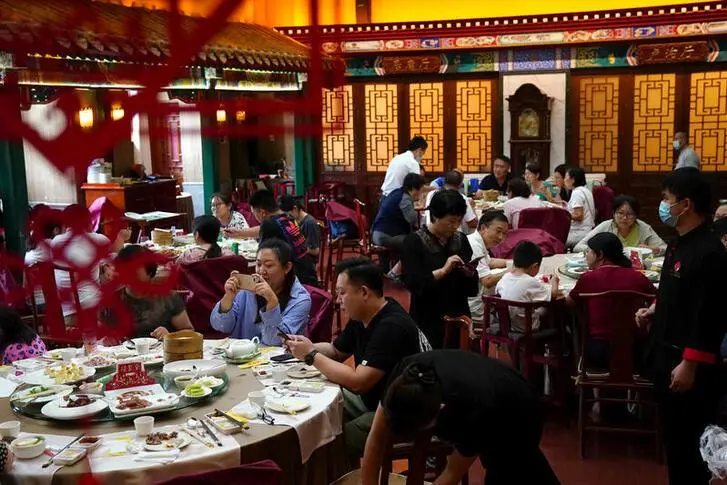PHOTO
(The author is a Reuters Breakingviews columnist. The opinions expressed are his own.)
HONG KONG - Beijing is serving up a plate of lazy command economics. Floods, epidemics and tariffs have delivered painful rises in grocery and restaurant bills. The official response is a crackdown on wasteful dining. For a government promising to deliver “moderate prosperity,” taking food off the table to curb runaway inflation is a bad look.
China made a hash out of a swine fever outbreak in 2018, which has yet to be brought fully under control. Pork prices have risen by an average of 94% year-on-year over the last 12 months, per Breakingviews calculations. On other fronts, armyworm moths have attacked the Chinese harvest and heavy summer floods have wrecked farms in southern provinces, forcing the government to release grain reserves.
Political tensions have compounded the pain. Beijing has applied duties to U.S. pork among other products, and in May slapped taxes on Australian barley. Worried about the pandemic spreading through the food chain, China has also suspended imports from a long list of suppliers. Now farmers, anticipating further price rises, may be hoarding harvests, risking a vicious cycle. While core inflation remains manageable, double-digit food price rises – 13% year-on-year in July alone – are docking disposable incomes among poorer citizens.
President Xi Jinping has responded by targeting gluttonous behaviour. Ideas have ranged from limiting the number of plates a table can order to weighing customers. Technology companies including Douyin, China’s version of TikTok, will punish “big stomach kings” who post videos of themselves overeating online.
In 2015, mainland urban diners wasted as much as 18 million tonnes of food, per government think tank estimates. That’s an issue, partly due to showing off at official banquets, but austerity will hurt restaurant owners without addressing bigger problems. China’s arable land per capita is half the global average, yet local governments are incentivised to sell farmland to developers and let favourite factories pollute soil and water. Farmers don’t own their fields, which slows investment in efficiency.
But even a rationalised Chinese agricultural sector can’t feed a growing middle class without trade. Government researchers project the country’s food supply gap will hit 130 million tonnes by 2025. Xi’s austerity campaign can’t make a dent in that.
CONTEXT NEWS
- China's social media app operators said they will punish users seen to be wasting food in their broadcasts, Reuters reported on Aug. 13, as the government lobbies against food wastage.
- Food price inflation was 13.2% year-on-year in July, according to official data published Aug. 10, the twelfth consecutive month of double-digit rises. Pork prices are up 85.7% from the same period in 2019.
- Heavy rains and flooding across China's southern provinces since mid-June appear to have triggered fresh cases of the swine fever that has decimated the national herd, Reuters reported in July.
(The author is a Reuters Breakingviews columnist. The opinions expressed are his own.)
(Editing by Una Galani and Jamie Lo) ((pete.sweeney@thomsonreuters.com; Reuters Messaging: pete.sweeney.thomsonreuters.com@reuters.net))





















